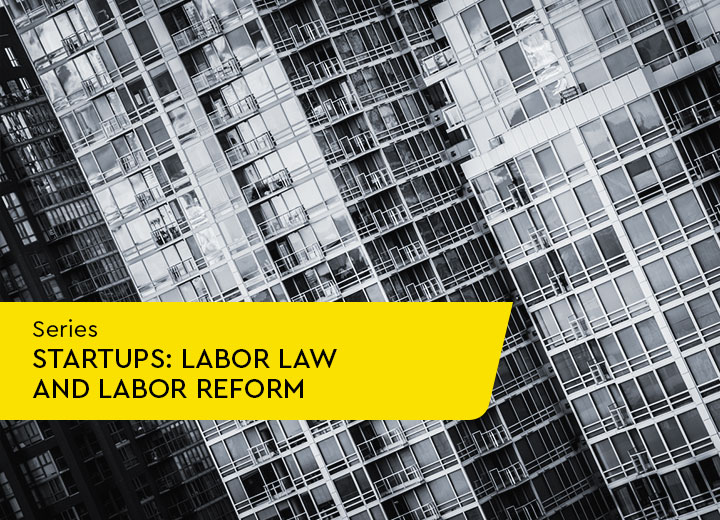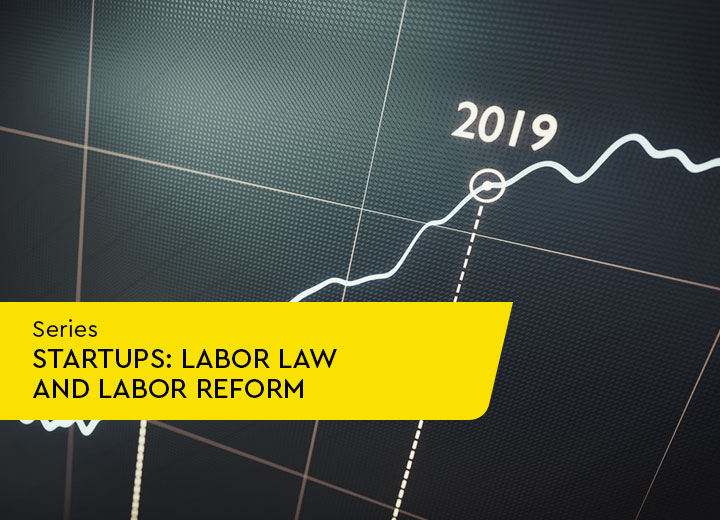
As part of our series of articles on the changes implemented by Executive Order 905/19, we highlight the following points that may affect trade union organization and relations.

Executive Order (MP) No. 905, published in the Official Federal Gazette on November 12, 2019, promotes a series of changes to the Consolidated Labor Laws (CLT), especially regarding labor inspection rules and the application of administrative fines.

In addition to instituting the Green and Yellow Employment Contract and implementing various significant changes in labor and social security laws and regulations and in the rules regarding payment of Profit Sharing, Executive Order (MP) No. 905, published last Tuesday, November 12, amended article 224 of the Consolidated Labor Laws (CLT) relating to the working hours of bank employees.

The rules established for the entry into force and effect of Provisional Measure No. 905/2019 are analyzed below, following the series of articles on the changes implemented by it.

In addition to instituting the Green and Yellow Employment Contract, Provisional Measure No. 905/19 ("MP 905"), published on Tuesday, November 12, implemented various significant changes and innovations in social security, labor, and tax law

A law passed in September by the state of California in the United States assumes that a person providing services for consideration should be considered an employee of the contracting company unless the company demonstrates that all of the following requirements have been met:

There is much discussion today regarding the best ways to decommission, to deactivate, the rigs used in the oil and gas exploration and production process, as most of them are approaching or are already at the end of their useful life.

The seven public civil actions filed by the Public Labor Prosecutor’s Office (MPT) against Brazil’s main banks for alleged liability for their clients' social and environmental risks are beginning to unfold.

In order to encourage the creation of new jobs and inject money into the market, the Ministry of Economy plans to present a package of measures that, among other actions, authorizes the replacement of funds paid by employers as appeal deposits with judicial performance bonds.[1]

The Labor Reform (Law No. 13,467/17) expanded the use of judicial performance bonds in the labor sphere. Already employed to ensure enforcement due to suppletory application of the Code of Civil Procedure, it was also provided for also by the new law in order to replace the appeal deposit, pursuant to paragraph 11 included into article 899 of the Consolidated Labor Laws (CLT).[1]

Even without the consent of the trade union, the Superior Labor Court (TST) approved requests for withdrawal by employees in a collective suit filed against two companies. The recent decision was delivered in Case No. 0010795-82.2015.5.03.0179.

In prior articles, we discussed some preventive measures that startups can take to adjust their internal procedures and thereby avoid possible breaches of labor laws and regulations. Startups may, however, face labor claims filed by their former employees or even by third parties who were not even their direct contractors.

After undergoing various changes for approval by the Chamber of Deputies on August 13, 2019, the bill arising in response to the Economic Freedom Executive Order went to vote in the Federal Senate.

Share-based incentive plans are long-term mechanisms that allow employees to participate in the valuation of the company according to previously established criteria. As a rule, implementing these plans results in greater alignment of interests between employees and the company, which helps retain talent, boosts workforce performance and, consequently, business performance, and indirectly leads to company valuation.

With technological advances, work done at home offices or locations other than the place of business, has multiplied, which has reinforced the importance of adopting legal guidelines and measures to give greater predictability and security to parties involved in this type of working relationship.